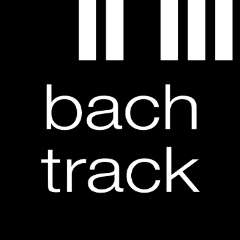It’s true what they say: you can please some of the people all of the time, and all some of the time, but not all the people, all of the time. And where opera is concerned, it’s possible to please even fewer of the people even less of the time: opera fans are a fierce, dedicated and opinionated bunch.
Outside of Prom season, classical music gets woefully short shrift on the television. Which is why people should have been grateful for the current season on the BBC, celebrating opera. For Telegraph critic Rupert Christiansen, however, even this can be too much. As he remarks in a recent article, “Rather than this gargantuan feast alternating with long periods of famine, I’d much rather see BBC television committing itself to a steady drip of coverage.”
I’ve written elsewhere about the trepidation with which I awaited the season of programmes, when it was first announced. Initially excited at the prospect, my enthusiasm balked on reading that we were to be guided through the myriad intricacies and the vast scale of Wagner’s operas by - Stephen Fry. And the promise of an exploration of opera in the hands of television celebrity chef Rick Stein doused my enthusiasm further still. If I want a profound examination of the innovations wrought by Wagner in tonality, harmony, in the form of the genre, I’m not sure I’d go to Stephen Fry immediately, much as I love the quizmaster of QI. And if I wanted an in-depth exploration of aspects of the Italianate operatic tradition, I certainly wouldn’t go knocking on Rick Stein’s door. If these things are to be done, let them be done by musicians, musicologists and music historians who really know their stuff, and can bring genuine insight to the programmes. As likeable as these two television personalities are, and as good as they are on camera, I need more than that when the programmes concern something as absorbing as music.
I have, however, been completely won over by Antonio Pappano’s series of programmes, and Pavarotti: A Life in Seven Arias, a documentary on the life of the greatest tenor of all time. Pappano has an infectious passion for his subject that comes across well on camera, and changes from knowledgeable cultural tour-guide to practical demonstrator, sitting at the piano and working through sections of music, with ease. And the chance to see a multitude of performances by the great Pavarotti: who could resist?
In his defence, though, I can see Christiansen’s point: a dearth of opera on the BBC throughout the year, interrupted by a sudden, concentrated explosion of programmes in a short season can seem overwhelming. There’s Diva Diaries, a docu-diary in the life of Danielle de Niese, Kiri Te Kanawa examining the qualities required to be a great soprano, Rolando Villazόn’s assessment of what makes a great tenor (answer: Pavarotti), as well as various operas being shown, including La Bohѐme and Aida.
One swallow doth not a summer make, though: a sudden flurry of programmes doesn’t make up for a deficiency the rest of the year. As in all things, perhaps it’s a question of moderation and of balance: fewer programmes all at once, but spread instead throughout the year, with relevant presenters offering real insight into the subject. It’s good: but it could be better.
Dan Harding 12th June 2010
Daniel is the Deputy Director of Music at the University of Kent. He writes about music on the departmental blog, ‘Music Matters.’


